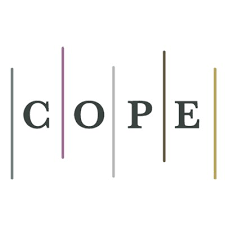Tax Compliance Behavior of Micro-Multinational Enterprises (mMNEs)
DOI:
https://doi.org/10.52547/ijimes.2.1.25DOR:
https://dorl.net/dor/20.1001.1.27832678.2022.2.1.2.9Keywords:
Tax Compliance, Digital Economy, Tax Compliance Behavior, Technology Adoption, Taxing Capability, Taxpayer Confidence, Tax Evasion, Tax Avoidance, Micro-Multinational EnterprisesAbstract
Purpose: Digitalization transforms business processes and benefits enterprises to operate across borders. As a result of digitalization, the business operates internationally through micro firms. These micro firms are smaller entrepreneurial firms identified as micro-multinational (mMNEs) presence in different countries used as a vehicle to artificially reduce taxable income or shift their profits to low or no-tax jurisdiction.
Methodology: Although the growing number of research to understand the compliance behavior of taxpayers, there is a lack of research to understand the tax compliance behavior of micro multinationals. Under the phenomenological approach, we uncover the factors that influence on tax compliance behavior of the entrepreneurs in the digital economy.
Findings: Broadly, the tax compliance behavior of micro multinational enterprises is influenced by the taxing capability of the authority and taxpayer confidence and Technology adoption in tax compliance increase taxpayer interaction.
Originality/Value: In this study we attempted to understand the tax compliance behavior of Micro-Multinational Enterprises.
Downloads
References
Organisation for Economic Co-operation and Development. (2014). Addressing the tax challenges of the Digital Economy, OECD/G20 Base Erosion and Profit Shifting Project. OECD Publishing. http://dx.doi.org/10.1787/9789264218789-en.
Li, S. (2003). Future trends and challenges of financial risk management in the digital economy. Managerial Finance, 29(5/6), 111-125.
Zimmermann, Hans-Dieter., & Koerner, Veith. (1999). Emerging Industrial Structures in the Digital Economy - the Case of the Financ
Rodríguez-Serrano, M. Á., Martín-Armario, E. (2017). Born-Global SMEs, Performance, and Dynamic Absorptive Capacity: Evidence from Spanish Firms. Journal of Small Business Management. doi:10.1111/jsbm.12319.
Demirel, P., Li, Q C., Rentocchini, F., & Tamvada, J. P. (2017). Born to be green: new insights into the economics and management of green entrepreneurship. Small Business Economics. doi:10.1007/s11187-017-9933-z
Hsieh, Y., Yenchun J. (2018). Entrepreneurship through the platform strategy in the digital era: Insights and research opportunities. Computers in Human Behavior. S0747563218301389–. doi:10.1016/j.chb.2018.03.033
Ghobakhloo, M., Fathi, M. (2020). Corporate survival in Industry 4.0 era: the enabling role of lean-digitised manufacturing. Journal of Manufacturing Technology Management, 31(1), 1–30. doi:10.1108/jmtm-11-2018-0417
Dimitratos, P., Amorós, E. José., Etchebarne, S. María., & Felzensztein, C. (2014). Micro-multinational or not? International entrepreneurship, networking and learning effects. Journal of Business Research, 67,908-915.
Zhang, J.J., Lichtenstein, Y., & Gander, J. (2015). Designing scalable digital business models in business models and modelling. Advances in Strategic Management, 33, 241-277.
Nahr, J. G., Nozari, H., & Sadeghi, M. E. (2021). Green supply chain based on artificial intelligence of things (AIoT). International Journal of Innovation in Management, Economics and Social Sciences, 1(2), 56-63. https://doi.org/10.52547/ijimes.1.2.56
Nambisan, S., Zahra, S. A., & Luo, Y. (2019). Global platforms and ecosystems: Implications for international business theories. Journal of International Business Studies. doi:10.1057/s41267-019-00262-4
Nozari, H., Szmelter-Jarosz, A., & Ghahremani-Nahr, J. (2021). The Ideas of Sustainable and Green Marketing Based on the Internet of Everything—The Case of the Dairy Industry. Future Internet, 13(10), 266. https://doi.org/10.3390/fi13100266
Wankel, C. (2009). Encyclopedia of Business in Today's World. SAGE Publications, Inc. Online ISBN: 9781412964289. DOI: http://dx.doi.org/10.4135/9781412964289.
Baller, S., Dutta, S., & Lanvin, B. (2016). The Global Information Technology Report 2016: Innovating in the Digital Economy. World Economic Forum, Geneva.
Allingham, M.G., & Sandmo, A. (1972). Income tax evasion: A theoretical analysis. Journal of Public Economics, 1(3), 323-338.
Sapiei, N.S., Kasipillai, J., & Eze, U.C. (2014a). Determinants of tax compliance behavior of corporate taxpayers in Malaysia. eJournal of Tax research, 12(2), 383-409.
Kraus, S., Filser, M., O’Dwyer, M., & Shaw, E. (2014). Social entrepreneurship: an expletory citation analysis. Review of Managerial Science, 8(2), 275-292.
Pittaway, L., Robertson, M., Munir, K. Denyer, D & Neely, A. (2004). Networking an innovation: a systematic review of the evidence. International. Journal of Management Reviews, 5/6, 3&4, pp. 137–168.
Tranfield, D., Denyer, D., & Smart, P. (2003). Towards a Methodology for Developing Evidence-Informed Management Knowledge by Means of Systematic Review. British Journal of Management, 14(3), 207-222. https://doi.org/10.1111/1467-8551.00375.
Ghahremani Nahr, J. (2020). Improvement the efficiency and efficiency of the closed loop supply chain: Whale optimization algorithm and novel priority-based encoding approach. Journal of Decisions and Operations Research, 4(4), 299-315. DOI: 10.22105/dmor.2020.206930.1132
Podsakoff, P.M., MacKenzie, S.B., Lee, J & Podsakoff, N.P. (2003). Common Method Biases in Behavioral Research: A Critical Review of the Literature and Recommended Remedies. Journal of Applied Psychology, 88, 5, 879–903. DOI: 10.1037/0021-9010.88.5.879
Jones, M. V., Coviello, N., & Tang, Y. K. (2011). International. Entrepreneurship research (1989–2009): A domain ontology and thematic analysis. Journal of Business Venturing, 26(4), 632–659.
Nguyen, A. (2020). Mind the (theme) gap between assessment and curriculum: a mixed-method study on the National High School Examination of English in Vietnam from 2018 to 2020 (Doctoral dissertation, IOE-University College London, Faculty of Education).
Gangl, K., Torgler, B., Kirchler, E., & Hofmann, E. (2014). Effects of supervision on tax compliance: Evidence from a field experiment in Austria. Economics Letters, 123(3), 378-382.
Mendoza, J. P., Wielhouwer, J. L., & Kirchler, E. (2017). The backfiring effect of auditing on tax compliance. Journal of Economic Psychology, 62, 284-294.
Atawodi, O. W., & Ojeka, S. (2012). Factors that affect tax compliance among small and medium enterprises (SMEs) in North Central Nigeria. International journal of business and management, 7(12).
Muehlbacher, S., Kirchler, E., & Schwarzenberger, H. (2011). Voluntary versus enforced tax compliance: empirical evidence for the “slippery slope” framework. European Journal of Law and Economics, 32(1), 89-97.
Schoonjans, B., Van Cauwenberge, P., Reekmans, C., & Simoens, G. (2011). A survey of tax compliance costs of Flemish SMEs: magnitude and determinants. Environment and Planning C: Government and Policy, 29(4), 605-621.
Eichfelder, S., & Kegels, C. (2014). Compliance costs caused by agency action? Empirical evidence and implications for tax compliance. Journal of Economic Psychology, 40, 200-219.
Levaggi, R., & Menoncin, F. (2013). Optimal dynamic tax evasion. Journal of Economic Dynamics and Control, 37(11), 2157-2167.
Bazart, C., & Bonein, A. (2014). Reciprocal relationships in tax compliance decisions. Journal of Economic Psychology, 40, 83-102.
Fan, Z., & Liu, Y. (2020). Tax compliance and investment incentives: firm responses to accelerated depreciation in China. Journal of Economic Behavior & Organization, 176, 1-17.
Kirchler, E., Hoelzel, E., & Wahl, I. (2008). Enforced versus voluntary tax compliance: The “Slippery Slope” framework. Journal of Economic Psychology, 29, 210-225.
Hai, O. T., & See, L. M. (2011). Intention of tax non-compliance-examine the gaps. International Journal of Business and Social Science, 2(7), 79-83.
Kogler, C., Muehlbacher, S., & Kirchler, E. (2015). Testing the “slippery slope framework” among self-employed taxpayers. Economics of Governance, 16(2), 125-142.
Kirchler, E. (2007). The Economic Psychology of Tax Behavior. United Kingdom: Cambridge University Press.
Szmelter-Jarosz, A., Ghahremani-Nahr, J., & Nozari, H. (2021). A neutrosophic fuzzy optimisation model for optimal sustainable closed-loop supply chain network during COVID-19. Journal of Risk and Financial Management, 14(11), 519. https://doi.org/10.3390/jrfm14110519
Collins, J. D., McMullen, J. S., & Reutzel, C. R. (2016). Distributive justice, corruption, and entrepreneurial behavior. Small Business Economics, 47(4), 981-1006.
Randlane, K. (2012). Tax Compliance and tax Attitudes: The Case of Estonia. Journal of Management and Change, 29, 89-103.
McKerchar, M. (2008). Philosophical paradigms, inquiry strategies and knowledge claim: Applying the principles of Research Design and Conduct to taxation. eJournal of Tax Research, 6(1), 5-22.
Robbins, B., & Kiser, E. (2020). State coercion, moral attitudes, and tax compliance: Evidence from a national factorial survey experiment of income tax evasion. Social science research, 91, 102448.
Rodriguez-Justicia, D., & Theilen, B. (2018). Education and tax morale. Journal of Economic Psychology, 64, 18-48.
Enachescu, J., Olsen, J., Kogler, C., Zeelenberg, M., Breugelmans, S.M., & Kirchler, E. (2019). The role of emotions in tax compliance behaviour: A mixed-methods approach. Journal of Economic Psychology, 74, 1-16.
Bobek, D. D., Hageman, A. M., & Kelliher, C. F. (2013). Analyzing the role of social norms in tax compliance behavior. Journal of business ethics, 115(3), 451-468.
Pickhardt, M., & Prinz, A. (2014). Behavioral dynamics of tax evasion – A survey. Journal of Economic Psychology, 40, 1-19. https://doi.org/10.1016/j.joep.2013.08.006.
Fochmann, M., & Kroll, E. B. (2016). The effects of rewards on tax compliance decisions. Journal of Economic Psychology, 52, 38-55.
Ghahremani Nahr, J., Ghodratnama, A., IzadBakhah, H. R., & Tavakkoli Moghaddam, R. (2019). Design of multi-objective multi-product multi period green supply chain network with considering discount under uncertainty. Journal of Industrial Engineering Research in Production Systems, 6(13), 119-137. DOI: 10.22084/ier.2017.8877.1421
Hofmann, E., Gangl, K., Kirchler, E., & Stark, J. (2014). Enhancing Tax Compliance through Coercive and Legitimate Power of Tax Authorities by Concurrently Diminishing or Facilitating Trust in Tax Authorities. Law & Policy, 36(3), 290-313.
Ghahremani-Nahr, J., Kian, R., & Sabet, E. (2019). A robust fuzzy mathematical programming model for the closed-loop supply chain network design and a whale optimization solution algorithm. Expert systems with applications, 116, 454-471.
Devos, K. (2012). The impact of tax professionals upon the compliance behaviour of Australian individual taxpayers. Revenue Law Journal, 22(1), 31-56.
McGuire, S.T., Omer, T.C., & Wang, D. (2012). Tax Avoidance: Does Tax-Specific Industry Expertise Make a Difference?. The Accounting Review, 87(3), 975-1003.
Argilés-Bosch, J. M., Somoza, A., Ravenda, D., & García-Blandón, J. (2020). An empirical examination of the influence of e-commerce on tax avoidance in Europe. Journal of International Accounting, Auditing and Taxation, 41, 100339.
Agrawal, D. R., & Wildasin, D. E. (2020). Technology and tax systems. Journal of Public Economics, 185, 104082.
LaMothe, E., & Bobek, D. (2020). Are individuals more willing to lie to a computer or a human? Evidence from a tax compliance setting. Journal of Business Ethics, 167(2), 157-180.
Haryani, S., Motwani, B., & Matharu, S. K. (2015). Behavioral intention of taxpayers towards online tax filing in India: an empirical investigation. Journal of Business and Financial Affairs, 4(1), 70-76.
Yong, S. (2011). Tax Compliance and Small and Medium Enterprise Operators: An Intra-cultural study in New Zealand. Auckland University of Technology. Doctoral dissertation.
Creswell, J.W., & Poth, C.N. (2018). Qualitative Inquiry & Research Design, Choosing Among Five Approach (4th ed.). California: Sage Publications, Inc. ISBN 978-1-5063-3020-4.
Friesen, N., Henriksson, C., & Saevi, T. (Ed.). (2012). Hermeneutic Phenomenology in Education: Methods and Practice (V-4). Canada: Sense Publishers.
Smith, D.W., & Thomasson, A.L. (Ed.). (2005). Phenomenology and Philosophy in Mind. New York: Oxford University Press.
Yin, R.K. (2011). Qualitative Research from start to finish. New York: The Guilford Press.
Smith, J.A., Flowers, P., & Larkin, M. (2009). Interpretative Phenomenological Analysis: Theory, Methods and Research. London: Sage Publications Ltd.
Saunders, M., Lewis, P., & Thornhill, A. (2007). Research Methods for Business Students (4th Ed.). England: Prentice Hall.
Creswell, W.J. (2009). Research Design: Qualitative, Quantitative, and Mixed Methods Approaches (3rd ed.). California: Sage Publications, Inc.
Smith, J.A. (2017). Interpretative phenomenological analysis: Getting at lived experience. The Journal of Positive Psychology, 12(3), 303-304. DOI: 10.1080/17439760.2016.1262622.
Creswell, W.J, & Creswell, J.D. (2018). Research Design - Qualitative, Quantitative, and Mixed Methods Approaches (5th ed.). California: Sage Publications, Inc. ISBN 978-1-5063-8670-6.
Published
How to Cite
Issue
Section
License
Copyright (c) 2022 Damith Gangodawilage, Wasanthi Madurapperuma, Chandana Aluthge

This work is licensed under a Creative Commons Attribution 4.0 International License.












